AC/DC singer Brian Johnson’s shock admission about band and his future
AC/DC frontman Brian Johnson has made a shocking admission about the popular rock band and what his future holds. Hear the exclusive audio.

Music
Don't miss out on the headlines from Music. Followed categories will be added to My News.
It’s the rock’n’roll conspiracy theory which has driven Brian Johnson mad for 42 years.
The AC/DC frontman finally asserts his truth about penning the lyrics for Back In Black, one of the greatest rock records of all time, in his memoir The Lives of Brian.
Johnson won the coveted role of fronting the Australian band, after a couple of auditions, in April 1980, two months after the death of Bon Scott in London.
In his book, he details the inspiration behind the lyrics for songs including the title track, Hell’s Bells and Have A Drink On Me and his writing process.
Each day during the recording sessions in the Bahamas, Angus and Malcolm Young would work out their riffs, put them on a cassette tape with a title and hand it over to Johnson to flesh out the words and vocal melody.
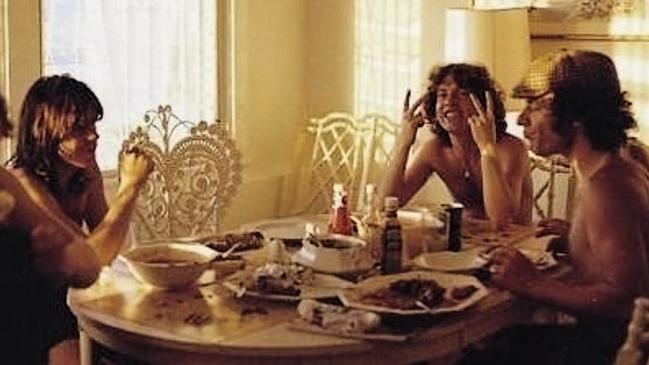
Johnson said it was important for him to put it on the record he wrote the lyrics and dispel the recurring myth that Scott had “scribbled most of the words to the album in one of his notebooks before he died.”
The Young brothers and Johnson are credited as the writers of all songs on Back In Black. Although the title for Rock’n’Roll Ain’t Noise Pollution was inspired by a story Scott told the band about his landlord complaining about the volume of his music before his passing, Angus Young has said they didn’t use any of the singer’s writing as they didn’t want to appear to profit from his death.
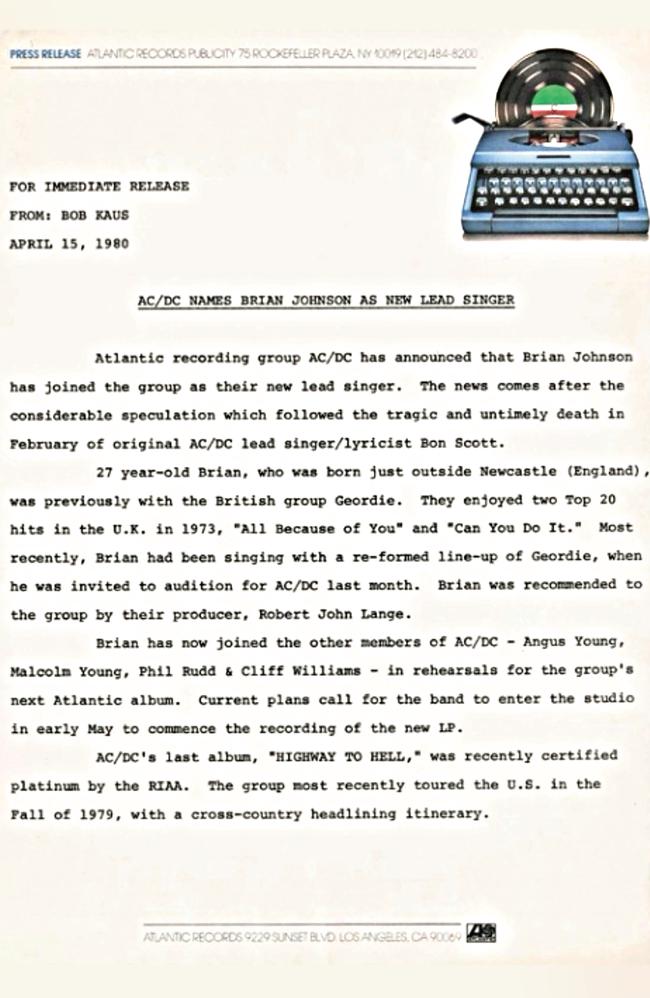
“I know there’s an individual who was a conspiracy theorist and that just kept saying, well, Bon wrote these lyrics,” Johnson says.
“What band would let somebody else claim somebody else’s lyrics? I mean, it’s just absolute nonsense. And that’s why I put it in the book, to say for once and for all, those lyrics came from the end of my hand with a pen in it.
“There’s people out there, they just won’t believe what’s true. And I felt awful after putting it down (in the book) but it had just got on my nerves for so long. I still love listening to Bon’s fantastic lyrics, his double entendres, his funny little quips … I couldn’t do that.”
Listen to part of Brian Johnson’s exclusive interview here:
The Lives of Brian mostly chronicles his hardscrabble childhood in grey and cold Newcastle where his father Alan, who served in the Durham Light Infantry in North Africa and Italy in World War II, and Italian mother Esther brought up their three sons and daughter. And where most of the Johnson family still lives.
The 75-year-old singer, car enthusiast, racing driver and documentary host writes about working as a draftsman apprentice, a car windscreen and vinyl roof installer and serving in the Territorial Army with the Parachute Regiment in Germany for two years as he pursued his rock’n’roll dreams.
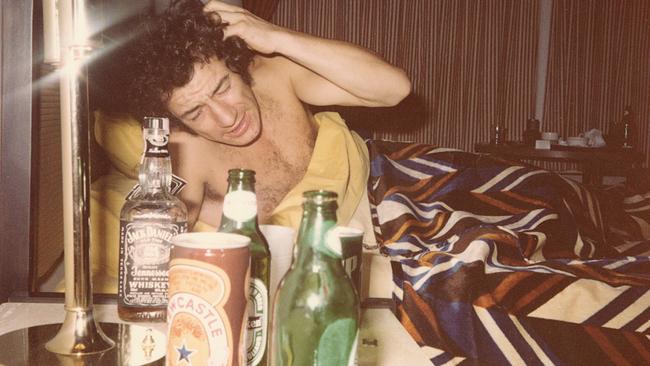
There were the pre-AC/DC years playing in working men’s clubs and pubs with bands including the Jasper Hart Band and Geordie, who enjoyed fleeting success before the Young brothers came calling.
The lean years when record labels and managers did dodgy deals and left him broke, with debt collectors at the door.
He shares how he came to wear his signature paperboy cap when still fronting Geordie II. His brother Maurice gifted it to him one night to stop the “toxic brew” of sweat, glue, shards of glass and vinyl from running into his eyes when he performed after a hard day’s work at the car workshop.
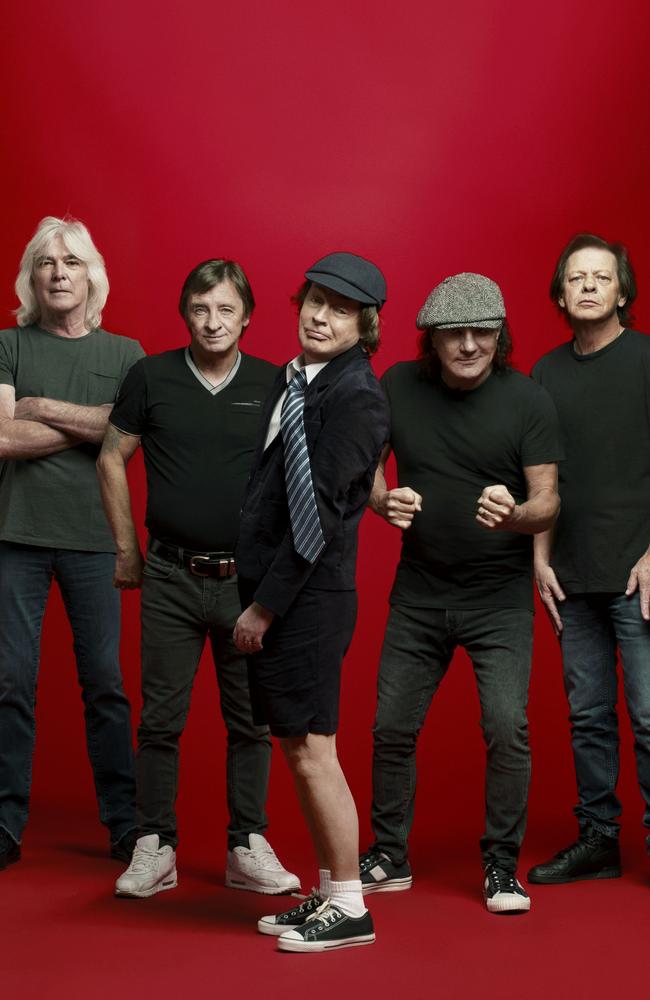
Johnson’s band used to perform AC/DC’s Whole Lotta Rosie in their set. In one of those sliding door moments, he met Bon Scott years before his death.
Scott’s pre-ACDC band Fraternity, who shifted their name to Fang in the UK after a previously disastrous debut tour there, were opening for Geordie in Torquay in 1973. When their tour bus broke down that cold night, a shivering Scott and his bandmates begged to share the B&B room for the night.
When AC/DC arrived in Perth to play on the Back In Black tour, Scott’s family asked to meet him.
The singer’s brother Derek, who Johnson remains in contact with, reminded him of the Torquay incident and how Scott had shared the tale – and his high opinion of Johnson’s vocals – with his family.
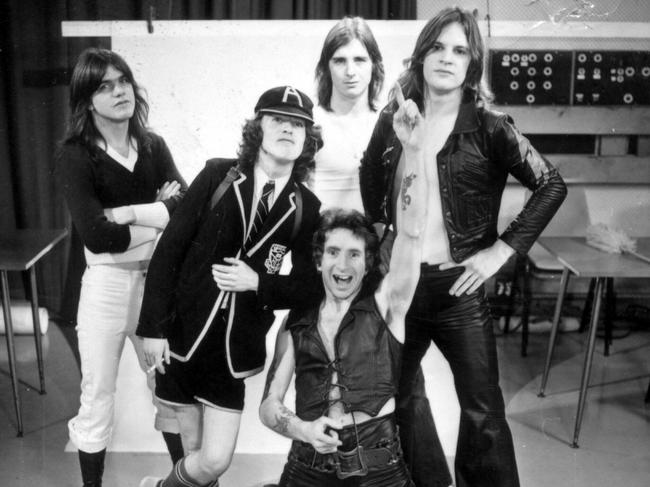
“We didn’t get there to see Fang until halfway through their set because we had a nine-hour drive from Newcastle to Torquay … I remember I saw Bon, he was a great singer,” Johnson says.
“The first time I went to Australia with AC/DC and we went to Perth, and I met with Isa his mum Derek was there, that’s when I found out I had played with Bon.
“Derek told me: “You know Bon raved about you to the lads. He thought you were a great rock singer.’ That was lovely, just lovely … life’s funny like that.”
Before he joined AC/DC, Johnson suffered the ubiquitous inequity which has dogged musicians for decades.
Recording contracts were – and many still are – weighted in favour of everyone involved in the process except the people responsible for creating the music.
Johnson and his Geordie bandmates were naive about the show business world and had no idea the dinners, hotel rooms, salaries and everything else being lavished on them by their management and label would be recouped from their earnings.
While Geordie enjoyed chart success and were the biggest band in England’s north east during their first incarnation in the early 70s, Johnson would almost end up bankrupt and had to fight in court to prevent his house being repossessed.
He later discovered the Georgie contract stipulated the artist was not to receive one cent more than 10 per cent of the gross income generated by sales or touring.
So when he joined AC/DC, he couldn’t believe the deal on the table which included he would be paid “the same as the rest of the band”, per diems when they toured and they would pay off the mortgage for the home which his ex-wife Carol and daughters Joanne and Kala lived.
“Believe you me, it’s still going on today. And it happened to the best of them; Elvis Presley got signed by Colonel Parker who said let’s go 50/50 and when Elvis got his first paycheck it was only 25 per cent because Parker took the other 25 per cent for management fees,” Johnson says about artists being ripped off.
“It wasn’t until Led Zeppelin’s manager Peter Grant took the band to America and the promoter said they would put them on at Madison Square Garden and give them 10 per cent of the gate and Grant told them ‘No, we’ll give you 10 per cent’.
“There were threats of violence and ‘you’ll never play here again’ and he booked them in another venue, sold out four nights and that’s when it started to change when the big bands got these managers who were savvy, they were hard men.
“The music business back then was an easy way to make money, the band sold records, went on tour and made an absolute fortune but they paid you like you worked for them. In their mind, they made you famous. But you can’t eat fame.”
The memoir also details the hell Johnson endured when he lost his hearing in 2015 courtesy of performing in driving rain and then immediately boarding a flight to the next gig causing fluid in his ear to crystallise.
It had to be chiselled out of ear in a delicate operation by the renowned Sydney ear, nose and throat specialist to the stars Dr Chang.
Johnson tried out the state-of-the-art in-ear monitors invented by American audio engineer Stephen Ambrose when he performed at the recent Taylor Hawkins tribute concert in London and remains hopeful he will sing with AC/DC again.
“At Wembley when we broke into Back in Black, the ears worked; I could sing,” he says.
“I’ve got everything crossed me darlin’ that I get to use them again. I’m 75 now to even get on stage and do something with those lads again, it would be a happy ending. I couldn’t ask for anything else.”
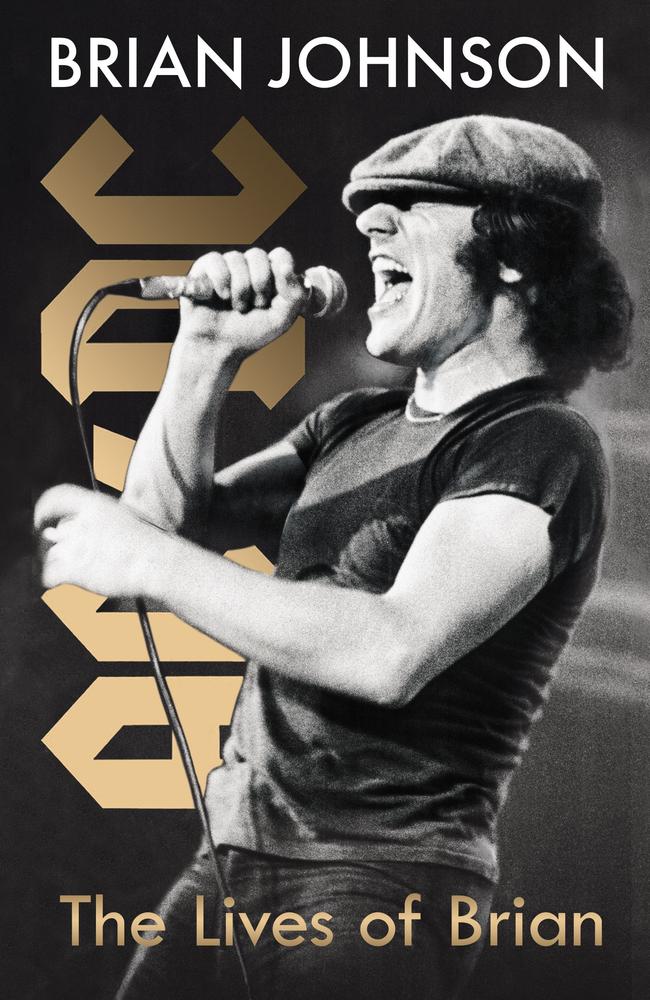
Johnson said the book ends with the Back in Black tour because he felt it wasn’t his place to tell the full story of AC/DC’s career.
He is also adamant he will not give permission for The Lives of Brian to be turned into a biopic, saying “I hate those movies.”
“The story of AC/DC isn’t just my story, that’s a story that belongs to Angus and Malcolm and Phil (Rudd) and even Cliff (Williams) who joined in 1977,” he says.
“And I want to read that, I want to know what it was like when they started AC/DC and all the funny things Malcolm told me about those years, getting dressed up in gorilla suits and the funniest thing about Angus and his schoolboy uniform and how he just kept it on.
“I just wanted to validate all the lives of the people that I knew, those friends who helped me make the decisions that made me who I am.”
The Lives of Brian (Penguin, $35), out now.
More Coverage
Originally published as AC/DC singer Brian Johnson’s shock admission about band and his future





